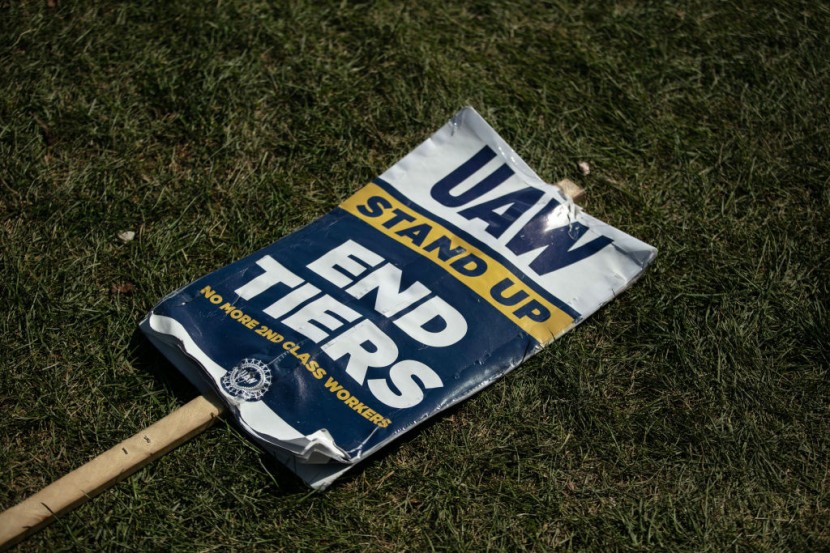Following the end of the strike held by the United Auto Workers union, several leading automakers have already raised employee salaries.
These include Hyundai, Honda, and Toyota where the first said on Monday that it would raise hourly pay for workers based in the U.S. Workers in Hyundai plants in Montgomery, Alabama, and Ellabell, Georgia will see a total increase of 25% to hourly wages by 2028.
UAW Strike Ends

The company's announcement matches the wage increase that UAW members are expected to receive from Ford, General Motors, and Stellantis. Toyota also said earlier this month that it would lift factory hourly wage by 9% to 10% beginning in January next year while Honda is planning an 11% hourly salary increase.
The trifecta of Japanese car manufacturers also said that they would reduce the time that it takes for a starting employee to reach the top pay rate. This would match or come close to the time periods that are stipulated in the UAW's tentative agreement with the Big 3, as per Yahoo Finance.
In a statement, the chief operating officer (COO) of Hyundai, Jose Munoz, said that the company is continuously working to maintain competitive wages and benefits commensurate with industry peers.
The development comes as there are more than 15,000 workers who are employed in the company's two U.S.-based plants. Hyundai is also scheduled to open a third factory in American territory when it starts to produce electric vehicles in Bryan County, Georgia, in 2025.
The decision of Japanese automakers to raise hourly wages comes despite their employees not coming from any unions. After the UAW secured the contracts with the Big 3, it said that it also plans to organize workers at Hyundai, Honda, and Toyota.
Labor experts have argued that the recent increases to salaries are at least in part aimed at preventing UAW President Shawn Fain's strategy to organize U.S. auto plants run by foreign automakers, according to CBS News.
Read Also : UPenn Student Who Praised Initial Hamas Attack on Israel Later Arrested for Stealing Israeli Flag on Campus
Increasing Employee Salaries
Earlier this month, Fain made a video address to members of the union where he said, "UAW, that stands for 'You Are Welcome.'" A professor of collective bargaining at Cornell University, Harry Katz noted that the UAW deal is raising pressure on non-union automakers to retain workers.
He added that there is also a strong labor market right now and that companies are doing really well within the industry. Katz noted that they have always wanted to stay outside of a union and are trying to stay close to the Detroit top-tier wages.
Following the end of the latest strike, the UAW is already planning its next endeavor, which it said is expected to be even larger. Fain said that the union chose its Apr. 30, 2028, expiration date for the tentative contracts while expecting that there could be a coordinated strike starting on May 1.
He noted that they were inviting unions across the United States to align their contract expirations with the UAW's so that they can flex their collective muscles. Fain added that they would take on the billionaire class and rebuild the economy so it would instead benefit the many, said CNN.
Related Article : Why MIT Admins Will No Longer Suspend Pro-Palestine Student Protesters








